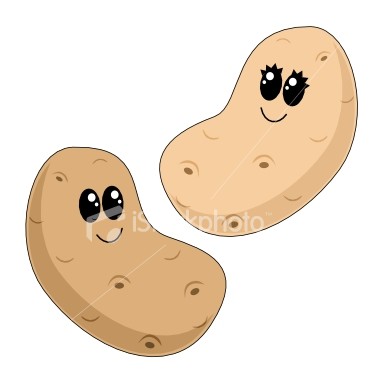Plagued by adverse climate change, growing fertilizer poisoning and increasing biofuel production, more and more arable land is losing its peak productivity triggering a global panic. But if agriculture scientists are to be believed the answer to this cereal deficit lies in the lowly aloo.
Although this humble vegetable cannot substitute for the cereals in our diet, it can nutritionally fortify us in their absence.
Often taken for granted, the potato has officially been dubbed the ‘food of the future’ at the recently concluded flagship event of the United Nations International Year of the Potato in Cusco, Peru. Potatoes are considered to be in fact “God’s blessing for the poor”.

Hidden Treasure of Potato
Water- 77 g
Niacin- 1.44 mg Phosphorus- 44 mg
Potassium- 379 mg
Thiamin- 0.106 mg
Riboflavin- 0.02 mg
Iron- 0.31 mg
Energy- 87 kcal
Carbohydrate- 20.13 g
Vitamin C- 13 mg
Calcium- 5 mg
Protein- 1.87 mg
Fibre- 1.8 g
Fat- 0.1 g
The UN hopes to increase awareness of the potato’s importance in developing countries and its contribution in achieving the Millennium Development Goals of alleviating poverty and reducing hunger. The poor who are grappling with the food price inflation are forced to compromise on their nutrition. If well marketed and managed, the potato can do wonders for any country’s food nutrition security.
Consider this, not only does one hectare of potatoes yield food value of 2-4 hectares of grain but it yields twice the protein per hectare of wheat also. And that’s not all. Almost 85 percent of this plant is edible – peel and all- compared to just 50 percent in cereals. Plus, it’s so rich in starch it ranks as the number one non-grain food commodity with the world producing a record 320 million tonnes of it in 2007. A third of this comes from China and India.
India is the world’s third largest potato producer, with a recorded production of 24 million tonnes in 2006. Between 1960 and 2000, production increased by almost 85 percent. Potato has earned a bad name due to wrong eating habits. But if correctly eaten – boiled, baked, grilled – its high potassium content can help reign in diabetes and other such serious ailments.
Like potatoes, there are other crops like soybeans and millets that can provide cheap nutrition in case of a cereal deficit.



